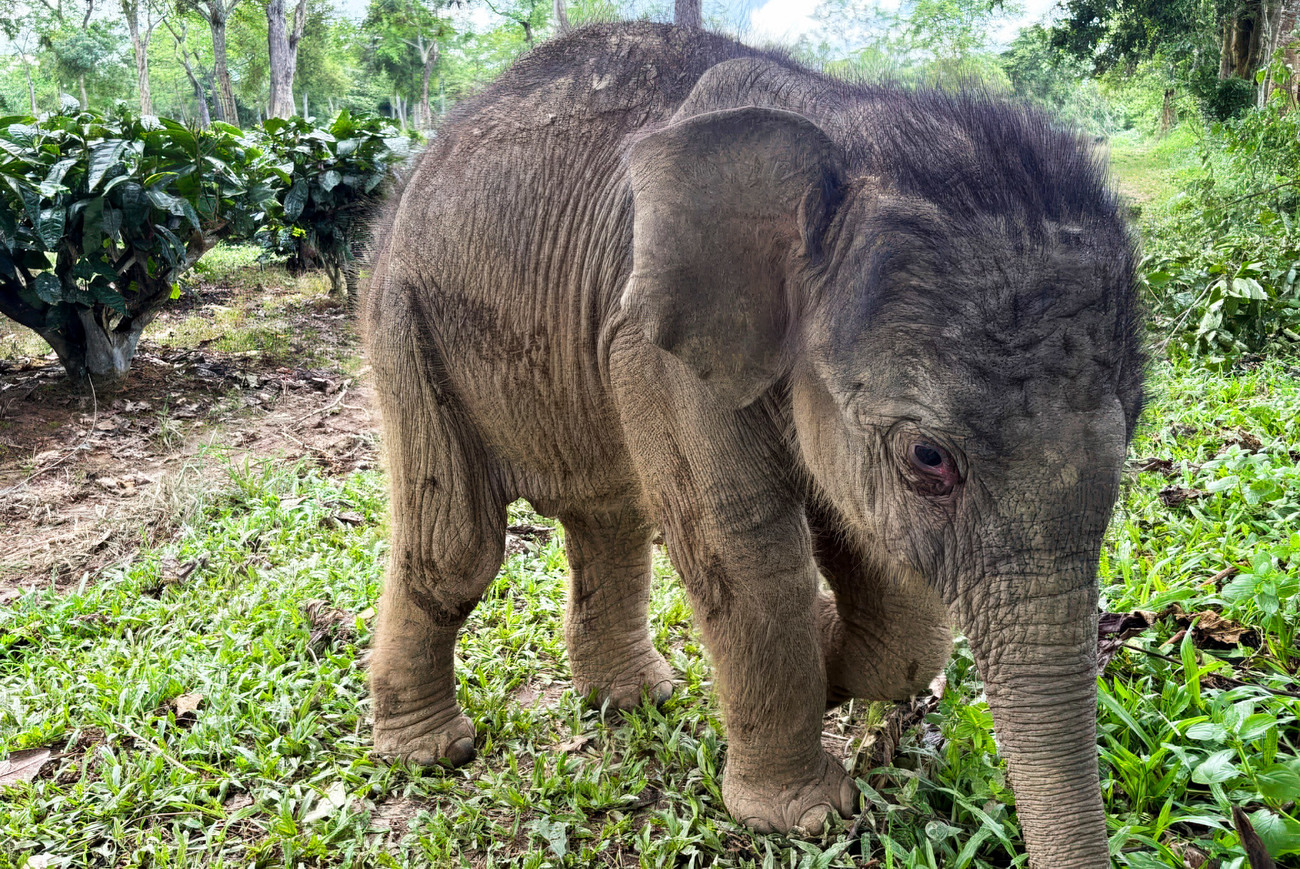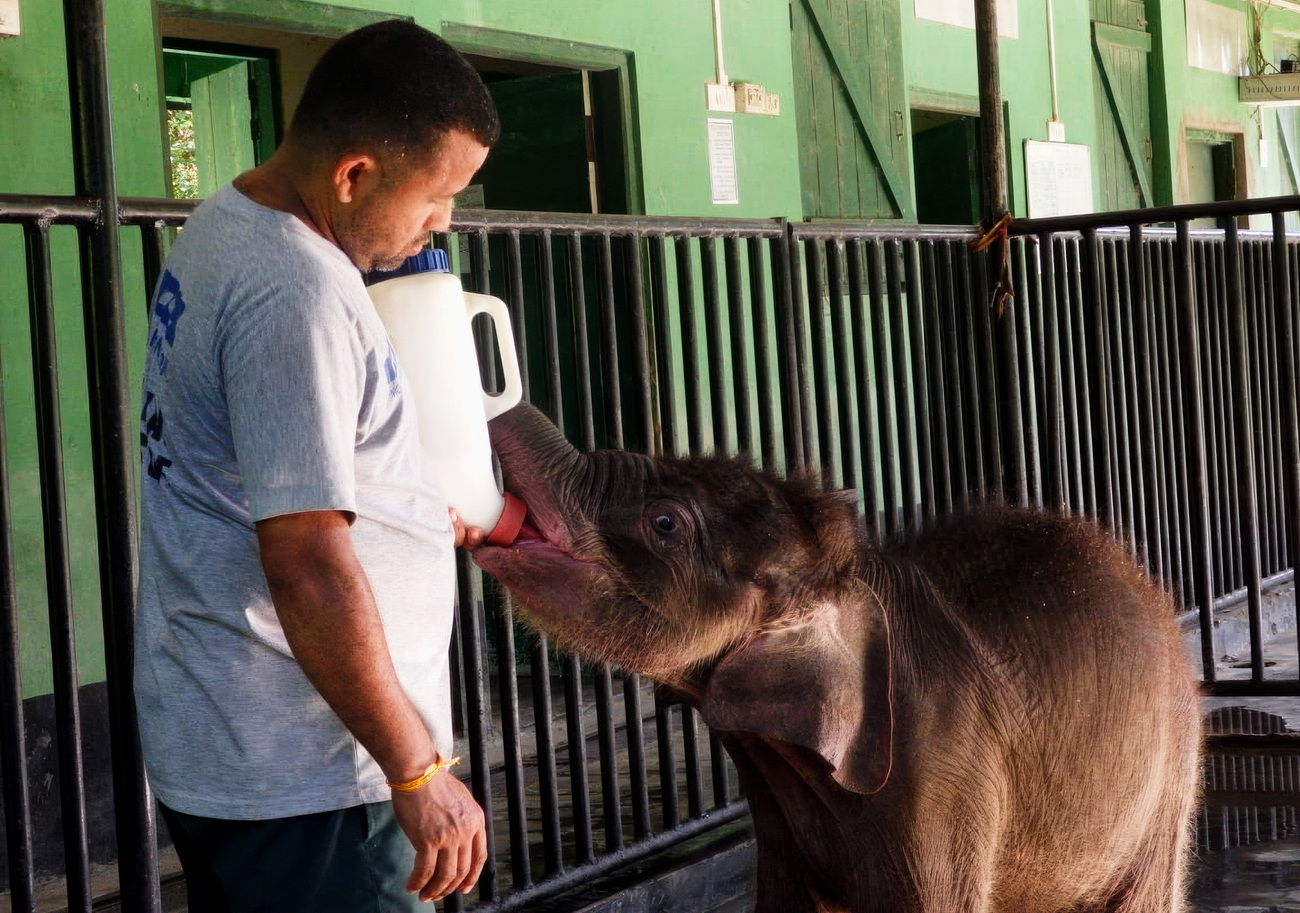Centre for Wildlife Rehabilitation and Conservation - India
Near Kaziranga National Park, animals are being threatened by a single highwayRescued elephant calf begins new life in India
Rescued elephant calf begins new life in India
At the edge of a tea estate in eastern Assam, a tiny life teetered between survival and loss. On 16 September, a roughly 6–8‑week‑old male Asian elephant calf was found stuck in a muddy trench near the town of Digboi’s historic oil field.
Tea estate workers quickly alerted the nearest forest department office and the Mobile Veterinary Service unit of IFAW-WTI stationed in eastern Assam. The team, led by Dr Mehedi Hassan, responded immediately. The young elephant was weak, dehydrated, and unable to free itself. On-site medical care, including fluid therapy and close monitoring, helped stabilise him. Only then could a safe rescue begin.

A fragile reunion
The next day, Forest Department staff spotted a nearby herd and attempted a reunion. But by the very next morning, the calf had again been found alone and even weaker than before. He had likely spent the night unable to feed, separated and rejected by the herd.
With his condition deteriorating, the team made the difficult but necessary decision to bring him into care. A temporary shelter was quickly arranged near the rescue site, overseen by Dr Hassan and his team, while permissions were secured to transport the calf to our Centre for Wildlife Rehabilitation and Conservation (CWRC).
Now named Monikuntal, the elephant calf received constant attention over the following days. For a younster like this, that meant artificial milk every two hours, careful veterinary checks, and expert care from dedicated keepers. Finally, ten days after first getting stuck, Monikuntal was strong enough to make the journey to CWRC and begin long-term rehabilitation.
At admission in September, Monikuntal weighed 97 kg. By 7 November, he had gained 18 kg and was adapting well.
A future worth fighting for

Monikuntal’s journey reflects IFAW-WTI’s mission—where each life matters, where rescue leads to recovery, and where hope turns into impact. At CWRC, he’s following a proven care pathway: stabilisation, socialisation with older calves, and, if all goes well, eventual return to the wild.
This story also highlights a growing challenge in Assam. Every year, elephant and rhino calves are separated from their herds due to floods, shrinking habitat, and increased human-wildlife conflict. CWRC was established—in collaboration with WTI, IFAW, and the Forest Department—to meet this need. In over 23 years, it has rescued more than 9,500 animals, with 63% of them released back to the wild.
Why this matters
Monikuntal’s rescue is more than an isolated success—it’s a reminder that every animal saved contributes to the resilience of their species and the health of ecosystems.
It underscores the vital role local communities play in conservation. This rescue began with tea estate workers who acted quickly and continued through the coordinated efforts of forest officials and our veterinary teams.
It also reflects IFAW-WTI’s long-standing approach to rescue as the first step in a much longer journey. For animals like Monikuntal, they will have the support and time for rehabilitation, and, when possible, a return to the wild where they can once again contribute to the health of their herds and habitats.
Monikuntal is now safe, growing stronger, and surrounded by a team committed to giving him a future. His journey—from the mud of a tea estate trench to the nurturing care of the team at CWRC—is a narrative of hope backed by action. With your support, we can help ensure that he, and calves like him, have the chance to thrive in the wild from which they came.
Related content
Our work can’t get done without you. Please give what you can to help animals thrive.